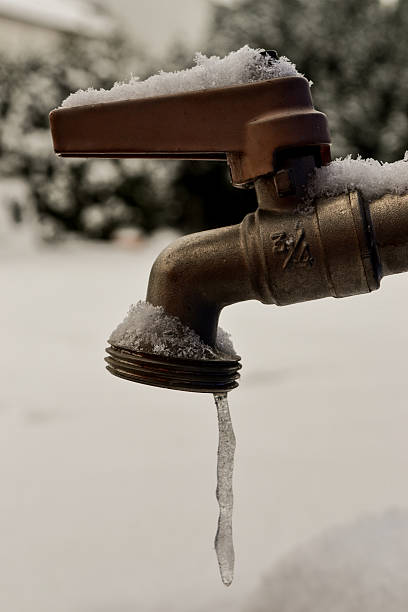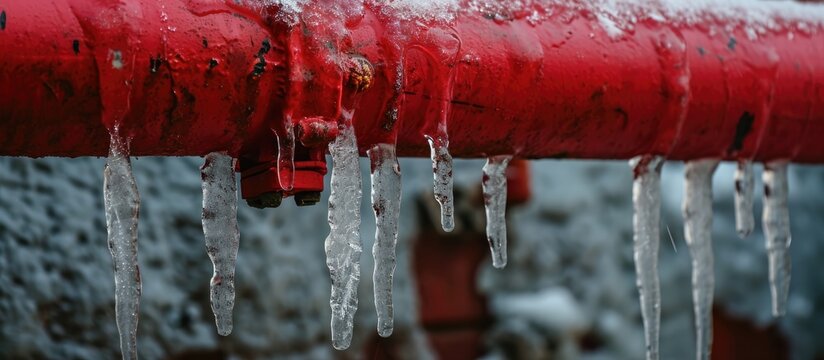Essential Approaches for Preventing Frozen Pipes in Cold Weather
Essential Approaches for Preventing Frozen Pipes in Cold Weather
Blog Article
Listed here in the next paragraphs you can get some worthwhile insight regarding Winter Plumbing Precautions: Preventing Frozen Pipes.

Winter can ruin your plumbing, specifically by freezing pipelines. Here's just how to avoid it from happening and what to do if it does.
Intro
As temperatures drop, the threat of frozen pipelines increases, possibly leading to expensive repairs and water damages. Recognizing exactly how to prevent icy pipelines is important for homeowners in chilly climates.
Understanding Icy Pipelines
What triggers pipelines to ice up?
Pipelines freeze when exposed to temperature levels listed below 32 ° F (0 ° C) for extended periods. As water inside the pipelines freezes, it expands, putting pressure on the pipe wall surfaces and potentially creating them to rupture.
Risks and problems
Frozen pipelines can cause water disturbances, residential property damage, and pricey repair work. Ruptured pipes can flood homes and create comprehensive architectural damages.
Indicators of Frozen Pipeline
Determining icy pipelines early can prevent them from rupturing.
How to recognize frozen pipelines
Try to find lowered water flow from taps, uncommon smells or sounds from pipes, and noticeable frost on exposed pipelines.
Avoidance Tips
Protecting vulnerable pipes
Cover pipes in insulation sleeves or make use of warm tape to shield them from freezing temperatures. Concentrate on pipelines in unheated or exterior areas of the home.
Home heating strategies
Maintain interior areas properly heated up, specifically locations with pipes. Open cabinet doors to allow warm air to distribute around pipes under sinks.
Securing Exterior Pipes
Yard tubes and exterior taps
Separate and drain pipes yard pipes before winter season. Install frost-proof spigots or cover exterior taps with protected caps.
What to Do If Your Pipes Freeze
Immediate actions to take
If you believe icy pipes, keep taps available to ease pressure as the ice thaws. Use a hairdryer or towels soaked in hot water to thaw pipelines gradually.
Long-Term Solutions
Structural changes
Take into consideration rerouting pipelines away from exterior wall surfaces or unheated areas. Add extra insulation to attic rooms, basements, and crawl spaces.
Updating insulation
Buy high-quality insulation for pipelines, attic rooms, and wall surfaces. Proper insulation assists keep consistent temperature levels and reduces the danger of icy pipelines.
Conclusion
Stopping icy pipelines calls for proactive steps and fast feedbacks. By recognizing the causes, signs, and preventive measures, property owners can protect their plumbing during cold weather.
Helpful Tips to Prevent Frozen Pipes this Winter
UNDERSTANDING THE BASICS: WHY PIPES FREEZE AND WHY IT’S A PROBLEM
Water freezing inside pipes is common during the winter months, but understanding why pipes freeze, and the potential problems it can cause is crucial in preventing such incidents. This section will delve into the basics of why pipes freeze and the associated problems that may arise.
THE SCIENCE BEHIND FROZEN PIPES
When water reaches freezing temperatures, it undergoes a physical transformation and solidifies into ice. This expansion of water as it freezes is the primary reason pipes can burst. As the water inside the pipe freezes, it expands, creating immense pressure on the walls. If the pressure becomes too great, the pipe can crack or rupture, leading to leaks and water damage.
FACTORS THAT CONTRIBUTE TO PIPE FREEZING
Low Temperatures: Extremely cold weather, especially below freezing, increases the risk of pipes freezing. Uninsulated or Poorly Insulated Pipes: Pipes located in unheated areas, such as basements, crawl spaces, or attics, are more prone to freezing. Insufficient insulation or lack of insulation altogether exacerbates the problem. Exterior Wall Exposure: Pipes running along exterior walls are susceptible to freezing as they encounter colder temperatures outside. Lack of Heating or Temperature Regulation: Inadequate heating or inconsistent temperature control in your home can contribute to frozen pipes. PROBLEMS CAUSED BY FROZEN PIPES
- Pipe Bursting: As mentioned earlier, the expansion of water as it freezes can cause pipes to burst, resulting in significant water damage.
- Water Damage: When pipes burst, it can lead to flooding and water damage to your property, including walls, ceilings, flooring, and personal belongings.
- Structural Damage: Prolonged exposure to water from burst pipes can compromise the structural integrity of your home, leading to costly repairs.
- Mold and Mildew Growth: Excess moisture from water damage can create a favorable environment for mold and mildew growth, posing health risks to occupants.
- Disrupted Water Supply: Frozen pipes can also result in a complete or partial loss of water supply until the issue is resolved.
WHY CERTAIN PIPES ARE MORE PRONE TO FREEZING
- Location: Pipes located in unheated or poorly insulated areas, such as basements, crawl spaces, attics, or exterior walls, are at higher risk of freezing.
- Exterior Pipes: Outdoor pipes, such as those used for irrigation or exposed plumbing, are particularly vulnerable to freezing as they are directly exposed to the elements.
- Supply Lines: Pipes that carry water from the main water supply into your home, including the main water line, are critical to protect as freezing in these lines can affect your entire plumbing system.
- Underground Pipes: Pipes buried underground, such as those connected to sprinkler systems or outdoor faucets, can be susceptible to freezing if not properly insulated.
https://busybusy.com/blog/helpful-tips-to-prevent-frozen-pipes-this-winter/

We were brought to that write-up about Preventing and dealing with frozen pipes from someone on a different web page. For those who appreciated our blog post please be sure to share it. I appreciate your readership.
Contact Us Today Report this page